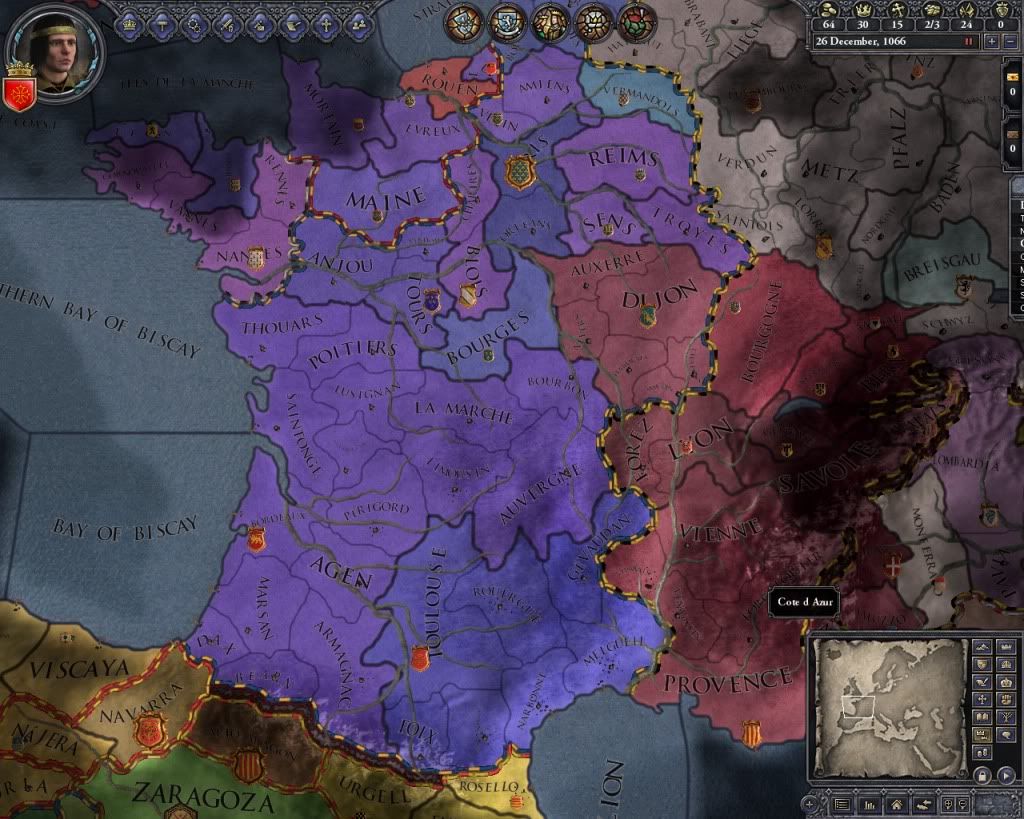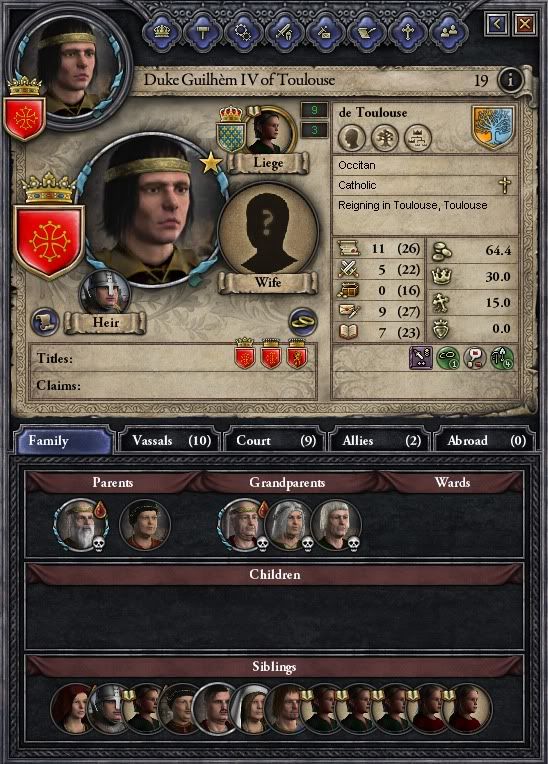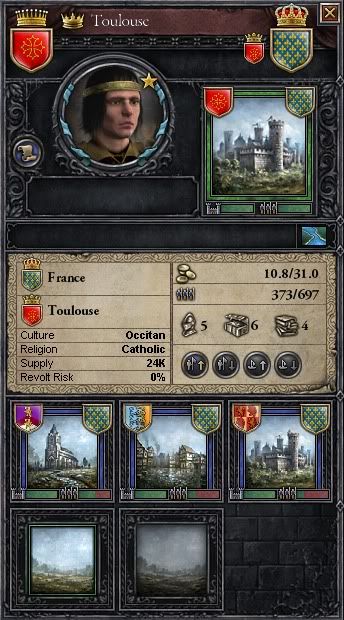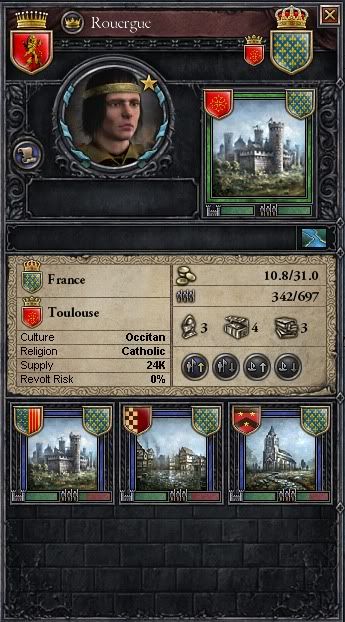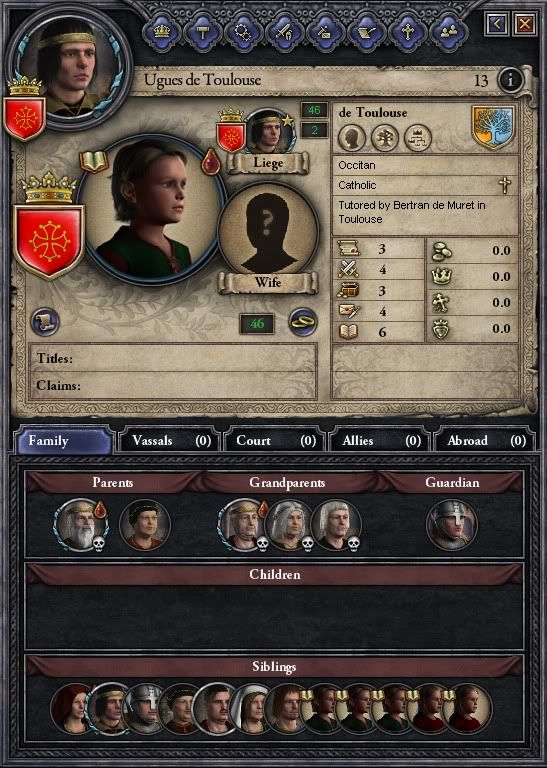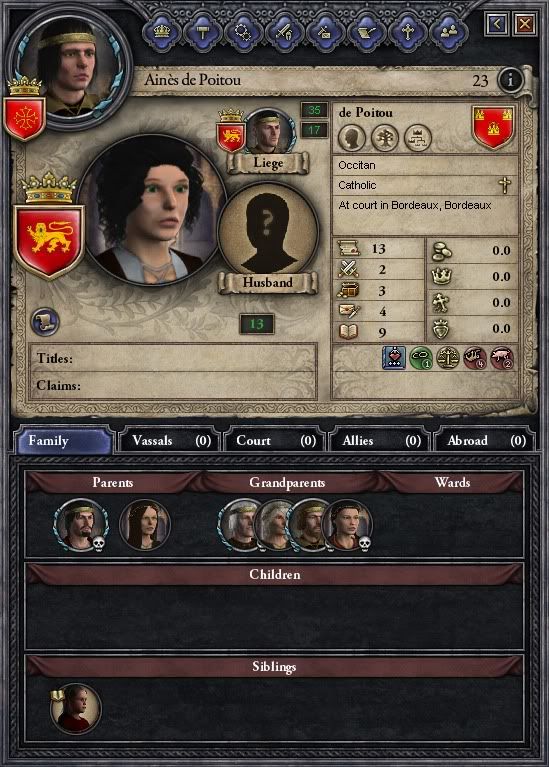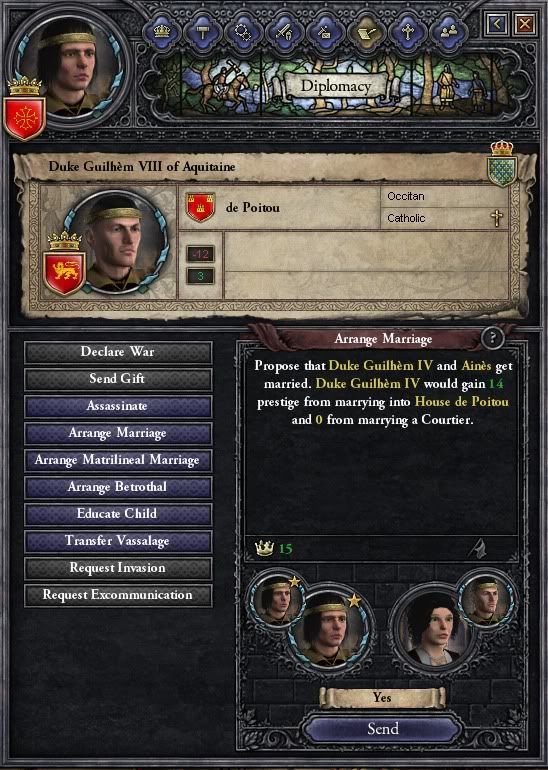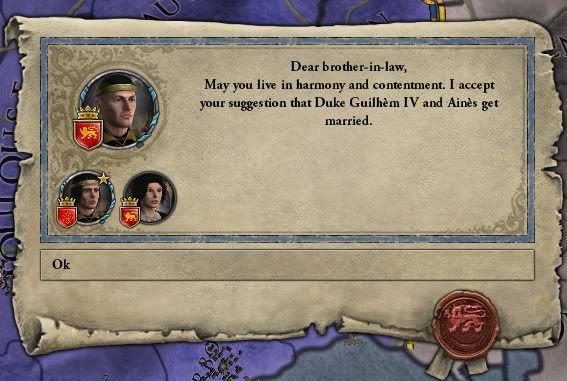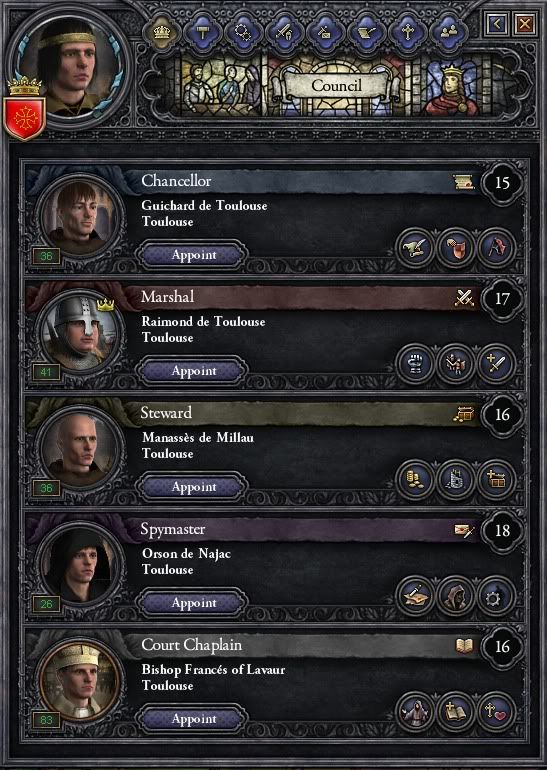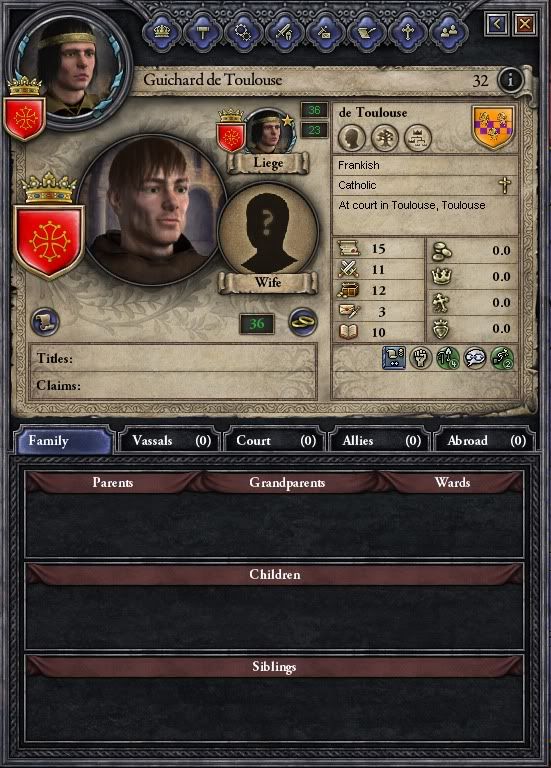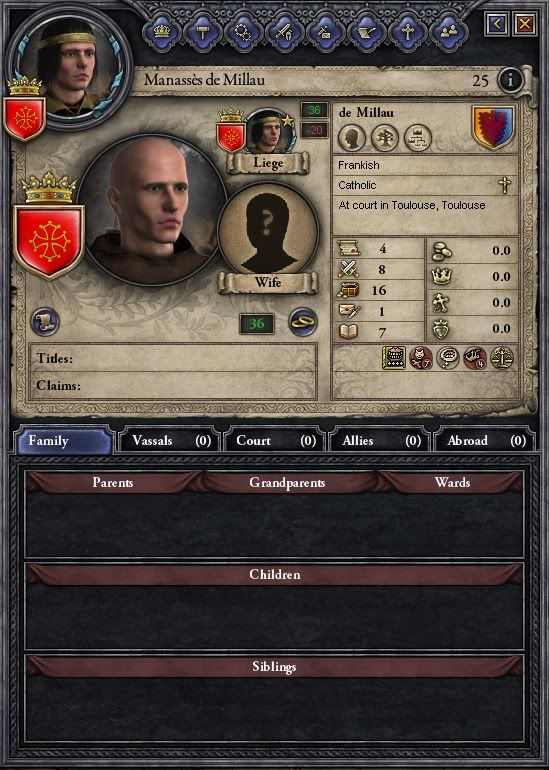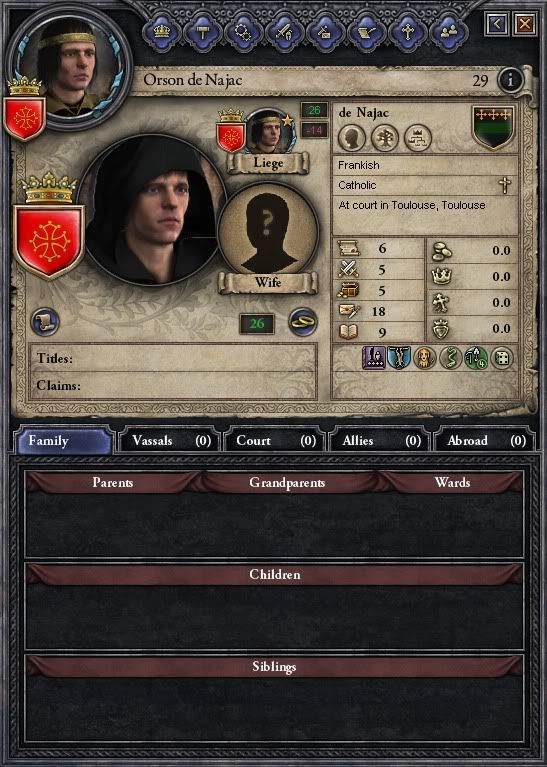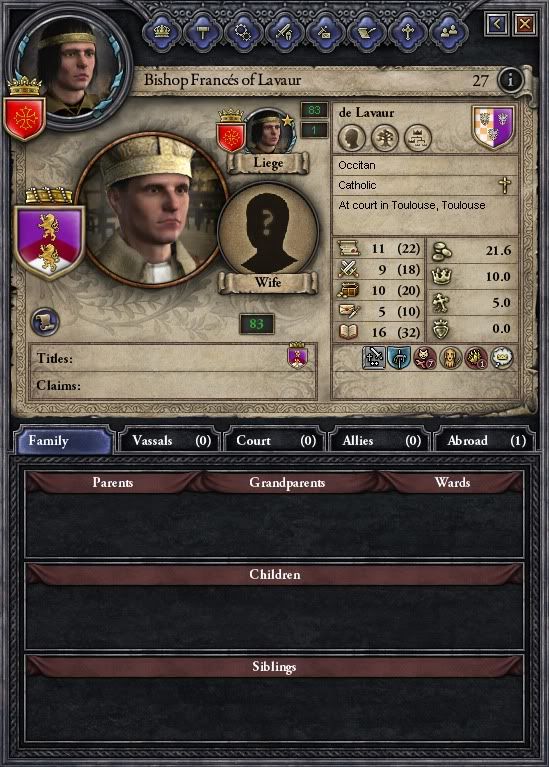Among the many duchies answering to the nominal authority of the French King in 1066, Toulouse controlled a sizeable chunk of the southeast portion of land as well as that kingdom’s entire Mediterranean coastline. Populated by an Occitan population and nobility, the inhabitants of Toulouse were generally masters of their own domain with only a veneer of loyalty to the Frankish foreigners that controlled the northern part of the kingdom.
Duke Guilhem IV de Toulouse held court in the ancient city of Toulouse itself. While he was a young man and fairly new to his station in 1066, he was already impressing the people around him with his personal charisma and Christian attitudes. Hardworking, diligent and honest, the Duke also excelled in martial matters. Conversely, the Duke’s tutors had failed to instill any practical sense of bookkeeping or accounting in their future liege and thus his weakness in such matters was quickly apparent whenever they manifested themselves.
Guilhem’s personal demesne consisted of two separate counties, Toulouse itself as well as Rouergue to the east. Each was relatively prosperous and provided the Duke with ample income for his generally simple life.
The de Toulouse family itself consisted of three young men, of whom Guilhem was the eldest, as well as a sister who was married to the son of the count of Melgeil, a vassal to the Duke. Additionally, their mother had remarried after the death of the previous Duke and had given birth to a multitude of other progeny with the neighboring Duchy of Barcelona across the Pyrenees. For the most part Guilhem had little interaction with his half siblings but one was married to the Duke of Aquitaine, another powerful Occitan vassal of France. This connection, though tenuous, was enough to secure a powerful diplomatic ally should a common concern strike both duchies.
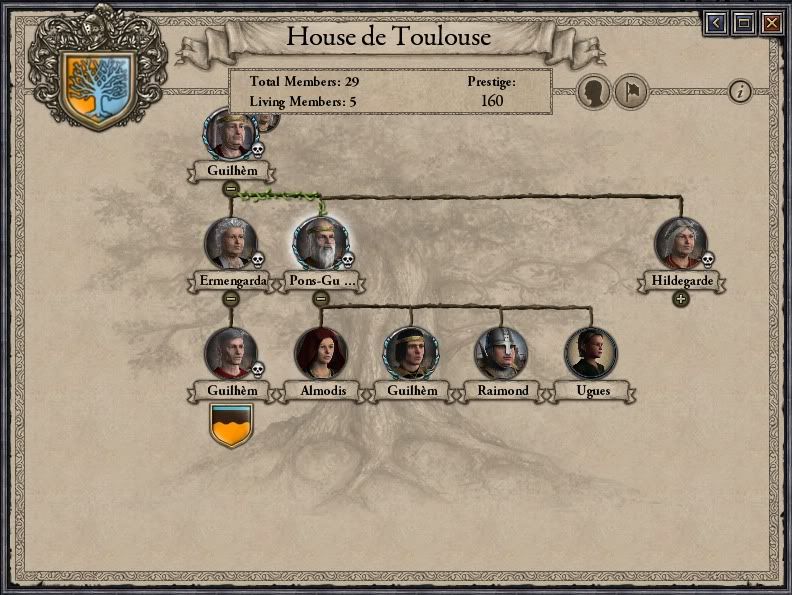
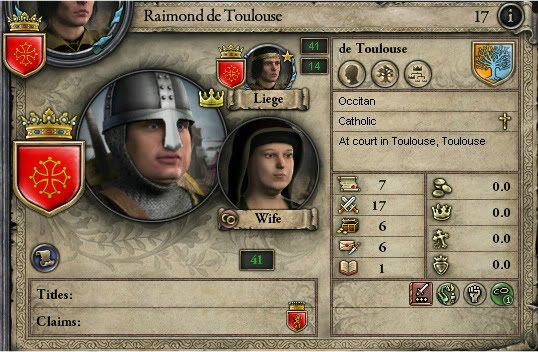
As an unmarried man with no legitimate issue, Guilhem’s heir to the ducal seat was his slightly younger brother Raimond. A truly astounding warrior, young Raimond was constantly at the forefront of any contests of arms held within Toulouse and was trusted by his brother enough to serve as marshal for the entire duchy. Raimond was also a deeply religious man and held the point of saying that when he wasn’t training himself to fight men, he was training himself to fight Satan.
Uges de Toulouse was Guilhem’s second full brother and was still being educated in 1066. The young man would typically try to sneak away from his instructors to see his brother hold court whenever he could but Guilhem himself rarely had time to interact with him. Based on the inheritance laws of the duchy, Uges would be given the county of Rouergue upon the death of the current Duke.
The most immediate concern to Duke Guilhem was his current unmarried state. While not worried of the duchy itself passing from his line due to his two healthy brothers, Guilhem’s councilors knew that civil wars had been sparked over brotherly confrontation many times in the past and urged their liege to find a suitable bride. While agents of the duke spread out through the territories to find a suitable match for him, Guilhem was anticipating his upcoming nuptials openly around the court by describing his excitement to anyone who would stop to listen.
After a short while of searching, word was received by an agent in the Duchy of Aquitaine recounting how the Duke there was actively searching for a husband for the daughter of his deceased brother who had been the former Duke himself. Aines de Poitou was described in glowing terms and it was not long before the negotiations for the marriage itself were well underway.




